Jack Bruce interview
Jack Bruce (14 May 1943 – 25 October 2014) was a Scottish musician, singer and songwriter known primarily for his contributions to the British supergroup Cream, which also included the guitarist-singer Eric Clapton and the drummer Ginger Baker. Bruce maintained a solo career that spanned several decades and also played in several musical groups. Although recognized first and foremost as a vocalist, bassist and songwriter, he also played double bass, harmonica, piano, cello and guitar. He was trained as a classical cellist and considered himself a jazz musician, although much of his catalogue of compositions and recordings tended toward rock and blues.
On March 12th 2013 Lenny Helsing interviewed Jack Bruce by telephone; the occasion was the newly released Graham Bond Organisation CD box set issued by Repertoire, Wade In the Water.
Lenny Helsing: Can you tell me briefly about how you hooked up with Graham Bond, Dick Heckstall-Smith and Ginger Baker to play in Alexis Korner’s band?
Jack Bruce: Well I’d sat in with Dick’s band at a May Ball in Cambridge, and then he spent a long time looking for me and when he eventually found me he said I should come and audition for Alexis. This was the original band with Cyril Davies, Dick, Alexis, Johnny Parker and myself. This was the most settled line-up, where Ronnie Jones off the US bases would sit in with us. Then Graham joined. That’s how it all started.
What was the reason you guys broke away from Alexis’s group?
I came in one day and Graham handed in my notice for me. He resigned Ginger and me. (much laughing from both Jack and me). I didn’t speak to Alexis for years after that, but that was the kind of guy Graham was. I was just a kid really, I was only about 19.
How responsive were the audiences to this new R&B group?
We used to play as a trio before Graham got the organ, with just alto sax, Ginger and me. That was enjoyable. Then we became just about the hardest working band in the country. We used to open loads of clubs, like the Hanley R&B club in about ’65 or so. But it was just the kids that used to come and see us and they’d just go crazy. We were funny looking too, we weren’t just some boy band.
There’s a tremendous mood and atmosphere in a lot of your early performances, do you remember much about the sessions?
I remember the sessions but not much about the music. I remember lots that was going on around it, but I can’t talk about that!
“In fact Cream were swapped with Louis Armstrong once.”
Some of my faves from your early period include those recordings like ‘SO-HO’ and ‘Say When’ you did as the GB’s with Ernest Ranglin, with quite frantic guitar and bass. Can you elaborate on any of that.
He was the Jamaican guitarist who started a lot of the Blue Beat scene in Jamaica. He also had something to do with the formative years of Bob Marley. But basically he played that Jamaican style of jazz, and he wanted to make an album at Abbey Road, but you see you couldn’t bring your own band then, you had to play with a British band as there was a union rule. In fact Cream were swapped with Louis Armstrong once. Yeah…I feel very impressed. But I’m amazed that they’ve put that Ernest Ranglin stuff on a Graham Bond Organisation box set.
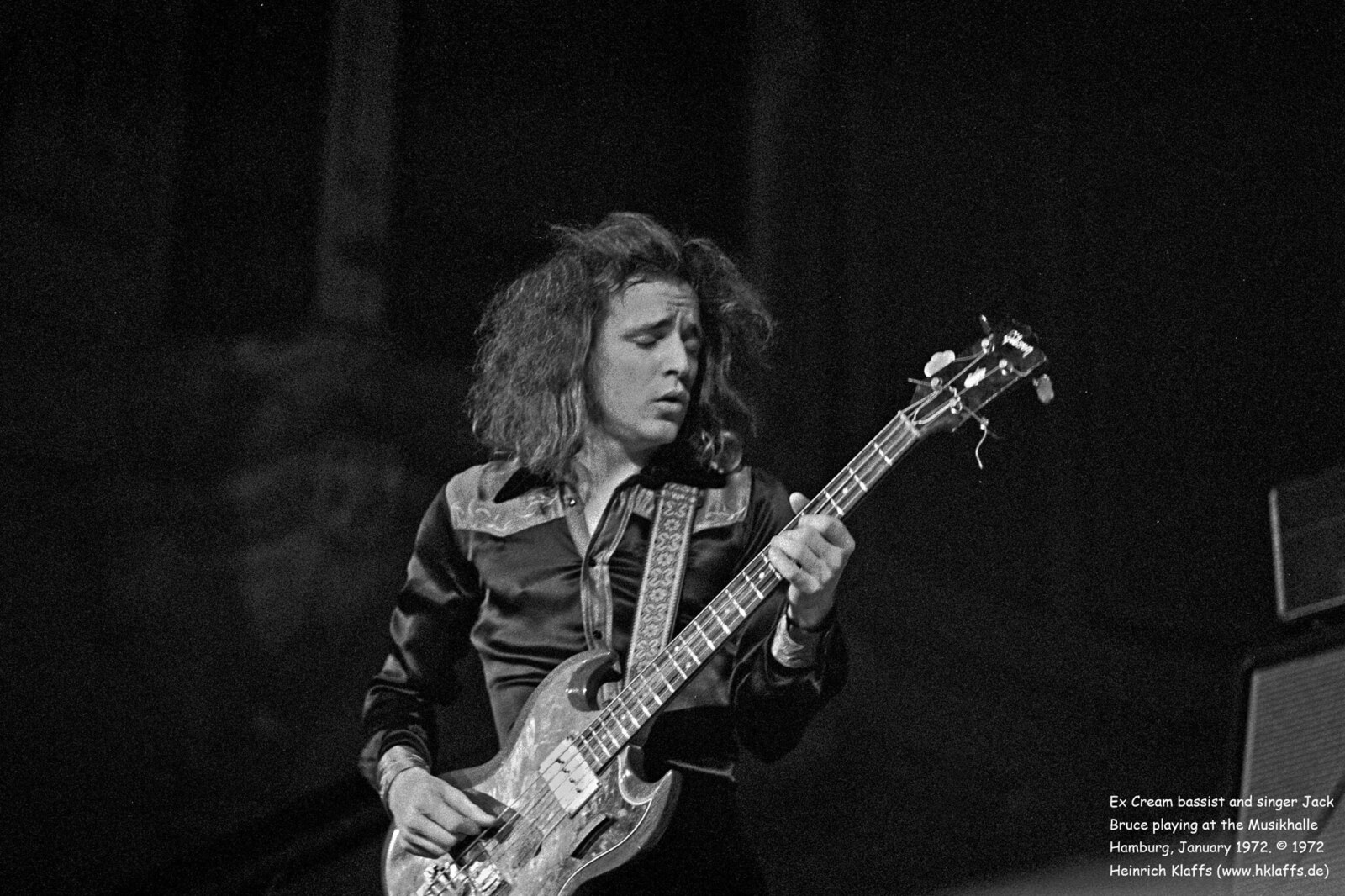
What do you recall of the group doing ‘Harmonica’ for the Gonks Go Beat film?
That was bizarre. You had to get up at some time in the middle of the night, and then just wait around for ages. It was really boring and then miming for five minutes. We looked very strange, with the shades on. But it’s like film making, you know there’s a lot of standing around. And then that song, who wrote it again?
It’s credited to Wilde.
Yeah, it’s Marty Wilde. Very strange y’know playing something like that, a Marty Wilde song that’s not y’know…
When was the last time you heard any of this stuff Jack? (At time of interview Jack still hadn’t got a copy of the box set.)
Oh years and years ago. To me when I hear the Graham Bond Organisation it’s interesting, but it’s like watching something, another life, and quite strange to listen to. I remember seeing Graham towards the end a bit. After I left the Organisation I played with John Mayall, and Manfred Mann, then Cream happened. Then we were playing Madison Square Garden and he came along, him and Diane. So it was a long time since I’d seen him. And then he disappeared and I didn’t see him for awhile. Then he played in my band briefly in the 70s, great band that. There was a great tv show, one of those on Granada and we were on that. I can’t remember the name of it, but I’ve seen it so it does exist.
What’s the story behind doing the backing for records by Duffy Power and Winston G?
Well it wasn’t so much that we were doing the backing, it was really more and more that they were joining us. We were put together by the A&R man at EMI, Ron Richards. It was part of the agency that had those names like Marty Wilde, Adam Faith, and Duffy Power. I don’t remember much about Winston G, I think he may’ve been a Robert Stigwood figure. But Duffy was a great singer and we did lots of gigs together and he became a great friend of mine.
Did you guys feel any affinity with the more guitar-driven R&B type groups, like The Pretty Things and The Yardbirds?
Well I wouldn’t describe them as R&B groups. You’d have to have an organ to be an R&B group, that was something else, blues or whatever. I think that was just a generic term but I don’t think anyone thought of them as an R&B band. But I mean what is R&B anyway?
Yeah well I was gonna ask you what you thought about the mis-appropriation of the term R&B these days?
Well you need to go back to the birth of rhythm and blues. It was always like jump music, it was always out of jazz and not out of country music, or the blues as such. What it was, was jazzers who couldn’t make a living playing straight ahead jazz, so then they’d do a commercial band and get really popular. Who was the guy in the 30s and 40s with the floppy hair…Cab Calloway. I mean to me that’s proper R&B isn’t it. Whereas now it’s mostly all ballads isn’t it.
Yeah and I’d say a lot of it is much more these days derived from the likes of disco and soul music.
I mean a lot of it’s good, and I’m not knocking it as music at all, but it’s just not what I come to think of as R&B. But what’s in a name?
With seven versions of it on the box set I have to mention the title track ‘Wade In The Water’.
Yeah well that was kind of like our theme tune. I remember when he started playing that it was amazing. It was very clever the way he did it, it was almost a whole show in itself. He did the classical bit, and then a gospelly bit, and then he would end up playing the organ and the saxophone but at the same time. That was quite a sound, he sounded like a whole bloody orchestra. I mean he could’ve just done that without us y’know. But we just gave him some help. That was Graham, a real showman.
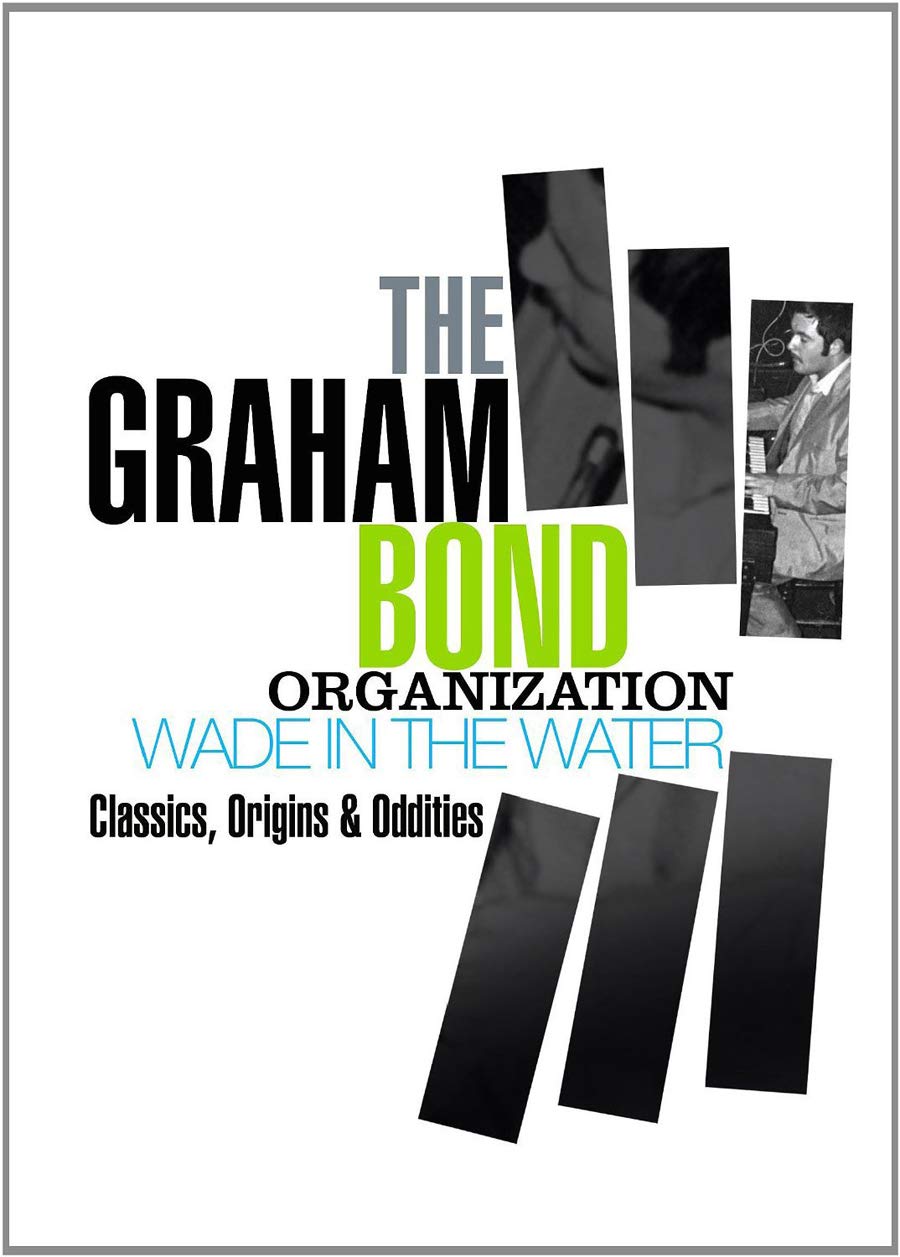
Yeah that’s something that really comes through when listening to the whole collection.
He was also a really tender person y’know, and I think he was kind of affected by the way he looked, cos he was quite big and he looked a certain way, and I think he then found he wasn’t. When I first met him he was a business man who wore business suits and ties. He looked a bit like Cannonball Adderley to me … and he just played the alto sax. And then eventually he changed, like we all did, but he changed a lot, and y’know became this magician. I’ve actually got a couple of his artifacts that were left to me, he left them to me. I’ve got this Peruvian axe that he used to carry around a lot, a ceremonial axe y’know. I don’t know whether it’s really a power for good or evil, but I certainly respect it y’know. But yeah ‘Wade In The Water’ that was like our theme. We would always start with that y’know, then there’d be another version of it in the same set.
Right, and I guess they would be quite radically different versions?
Yeah they might’ve been, or I might just be making that up ha ha.
But having listened to the whole box Jack, it’s quite obvious that the various versions do become radically different at times.
I think that’s the thing with a live band like that, cos we were playing up to 300 gigs a year. You can look up certain websites, not mine though, which only goes as far back as Cream, for all the dates. There’s a Canadian guy that knows everything, all that stuff, even all the songs we did. It’s mad, it’s like…get a life ha ha. Anyway we worked really hard.
“they just went nuts!”
Did the GBO manage to play any gigs outside of the UK?
We played in Holland once, we drove there, it was great. As to how responsive the crowd was, well I think they had to get in the Fire Brigade… they just went nuts!
What about Scotland, did you ever play up here?
No, I don’t think we did (thinks)… Oh wait a minute, I tell you what we did was this Chuck Berry tour. It was Chuck Berry, The Moody Blues, and we were somewhere down there on the billing. I was still playing double-bass at the time. That was at the Glasgow Empire and I was so proud of being there, that I actually shouted out “I’m from Glasgow too” and they all went “Boo…” Ha ha ha…and I was like, I’m home.
Jack, you also handled some of the lead vocals in the Organisation didn’t you?
That’s when I started singing on stage. I was always singing before that, in choirs in the church. I was a great singer, boy soprano and everything. But I couldn’t find my voice. I couldn’t find my range with the group. Then I sang a couple of them to give Graham a break.

One of the songs you sing on the box set is an unissued live take of ‘First Time I Met The Blues’, do you remember that one?
Oh yeah, that’s me. I heard Buddy Guy doing that in a club, the Twisted Wheel I think. That made a big impression on me, especially since I couldn’t see him I could only hear him ‘cos I was in the van with a girl. So I never actually saw the gig.
One of the real treats of the previously unreleased tracks on the box set is a Ginger Baker song called ‘Cold Rain’, does that ring any bells?
No, I don’t recall that one, but it may be after my time?
No, it says it’s from Jan ’65 and features you, Graham, Dick and Ginger.
Who sings it?
It’s Ginger singing on it, and he wrote it as well. Pete Brown suggests in the sleevenotes that the subject matter might’ve been too heavy, too risqué for the record company to get behind it, as it’s an addiction song.
Oh well it may have been just something we were trying out in the studio, or maybe it was too miserable.
Oh no it’s really great, really moody, and really quite an excellent song.
Oh well I’ll have to check that one out as I don’t remember that one at all. There was a lot of stuff going on. To be honest with you those sessions I just … y’see people forget, they think y’know you do a record, you do a bit of recording, but people forget you’ve got this other life going on, and it can make it even difficult just getting to the studio and doing it. A lot of stuff can happen. There was certainly a lot of stuff happening around that time for me so I don’t remember much. I mean just going into the studio and doing it didn’t take long.
And yeah of course back in the 60s most groups didn’t have the luxury of elongated studio visits did they, they were just in and then out again.
Well I think we made the whole Sound Of ’65 record in one session, about three hours.
Wow, that’s fantastic.
What used to happen, especially with EMI, was that the bosses, and the workers … the workers were the musicians and you would hardly ever even go up to the control room in those days. You’d stay downstairs and they’d be up there in the control room, and they would play it to you through the big Tannoy speakers. I mean occasionally you might get to go up. But yeah, you were just in and then out again like that. I mean if you think of things like Coltrane records, they were done in the same way. They’d give him a session, a couple of sessions and they had to get on with it. In some ways that could also be quite good, but in other ways it could also be quite hard too.
I’ve got a band, a good eight-piece band and we’ve been up to Glasgow a couple of times in the last couple of years which was really good.
Where was it that you played?
Eh …what was that one again, the Tunnel or…?
The Arches?
Yeah that’s it, it’s a good place to play, a good gig.
I was just there at the Arches last month to see The Beatstalkers who had reformed, and because their organ player Eddie Campbell couldn’t make it, his place was taken by one of your contemporaries at the time, Zoot Money.
Oh right, what, he was there?
Yeah he was playing organ.
Really, where was that?
At the Arches.
When?
Just on February 2nd there at the Arches.
Really that’s amazing.
I had a good chat with him afterwards too.
How’s he doing?
He’s doing great, he was on terrific form.
Really, that’s great. I haven’t heard from him in ages. It was sort of Graham and the band that, well we didn’t really discover him, but anyway we saw him playing somewhere, I think it was in Southampton, which is where he was from, or it was Portsmouth… Anyway we saw him playing and we said you should really go up to town you know. You gotta get up there, there’s a lot of people about you know.
I knew there was some little connection there with Graham and Zoot but I didn’t realise what it was really.
It was that really, but it wasn’t just Graham I mean it was all of us, it was the band. But Graham, he was the great one for finding out, like John Mayall too, he found him. He was always good at that. You know he was the first one to tell me about Eric. He knew a lot about what was going on. I never did but he did.
Musically speaking, there seemed to be an almost telepathic relationship going on between you guys. Can you tell me how easy, or difficult it was, especially for you, to be the kind of anchor man when Graham or Dick went off…
Well Ginger and me had played a lot together in other situations. I mean he eventually played with Alexis for awhile but we played a lot in jazz groups.
Was this before you hooked up with Graham?
Graham was actually in that band too that were called the Johnny Burch Octet, that was a really great band. I tell you what, I saw Ian Dury just before he died and he said. “Hey Jack, I always wanted to tell you that I loved that band that you were in that played at The Plough in Ilford”. He said he used to go down there every Thursday night or whatever it was, and he said he learned just about everything from listening to the Johnny Burch Octet. It’s very important to mention them as he was the one who kinda put us all together. Unfortunately there was hardly anything recorded of of us.
Did you say they were an Octet Jack?
Yeah an Octet, there were eight of us. We just got together to play unusual arrangements.
When would that’ve been?
Probably early to mid 60s, about ’64 something like that maybe.
Talking about the musical exploration in the Organisation, how free was it?
Well within the limits of the thing…cos remember that band wasn’t like Cream that just improvised, we were very much playing y’know 12 bars and songs, as such, so the improvisation is kinda like the jazz improvisation where you know, you are inside the framework, you’re not leaving that…but within that yeah it was, I mean Graham and Dick of course the horn player was amazing.
What was the most musically-fulfilling period of the Organisation for you?
I think there was a couple. The Trio was very good when Graham was just playing sax, but I think it didn’t have all the excitement of the organ band. So I suppose round about ’65 would be a high point for me cos that’s when we’d played so many gigs. So if we hadn’t’ve been thinking as one there’d be something wrong ha ha… I mean we’d played so much together that you actually used to try and not play too close you know, so that it was something a bit more…but yeah it was great, a very powerful band. I remember some American musicians would come and sit in with the band, occasionally, but the power of that band was too much. You couldn’t just go in and play, it was very much a unit of its own.
Yeah I think that comes across very much when you begin to listen to all that stuff on the box set. I can imagine even the good players, if they came and sat in on some stuff with the Graham Bond Organisation they could get a bit lost.
Well they’d get a bit of a shock put it that way. But most of the things I do, or that I’ve done are always a bit that way, they’ve always had a bit of an edge to it, y’know trying to find something in it. Although I have also done tours and things where you more or less just played the same thing every time. Not any more. Now I’ve got a couple of bands that I’m in. I’ve got my eight-piece band, and I’ve also got Spectrum Road which is very similar to the Graham Bond band. We’ve got the same line-up, we’ve got John McGeskie on organ, he only plays the Hammond, and the Mellotron, no synthesisers or anything, then we’ve got Vernon Reid on guitar, the speediest freak of them all, and Cindy Blackman-Santana on the drums, and myself. And apart from not being vocally led, it’s got the same kind of thing of being more like a unit. And when we start it’s just like, wow!
When there are vocals is it you singing Jack?
Yeah I do a little bit of singing, although I’ll hopefully do a little more as time goes on and we get more things together. We did all the big jazz festivals last year, that was a lot of fun. But it’s difficult to get these four people available at the same time. Especially McGeskie he’s in great demand. He’s got a few bands, and he also does some sessions. He’s a great player.
Aside from all the GBO gigs, what was the social aspect of the day, did you hang out much together, or did you have different sets of friends?
We didn’t kinda interact much apart from being on the road together, but we were on the road together all the time, basically. So the short times when you’re not on the road you’re not gonna hang out. We all had our own things going on. I mean there was a small circle of people that kinda hovered about Westbourne Park and like Notting Hill, so there was a little scene going on there.
So was that before the more celebrated scene there in the later 60s?
Yeah that was way back, it was still a kinda hangover from the 50s. It was a long time ago. But I got married round about ‘65/’66 so you know there was all this other stuff going on too … if you had to go and buy a pram you know. It’s funny though as it’s almost exactly 50 years to the day that I came down and stayed in London. That was a bad winter too, really hard. That was one of the coldest winters on record. This has been a hard winter too. But I haven’t been here all the time. I’m always somewhere else.
Yeah I’m sure you’re still well in demand.
Well yeah, I could play a lot more than I do. I’m doing the Fiji Rock Festival this year. That’s with Japanese musicians. We’re gonna be doing like the old you know Cream kinda classics. It’s a three-piece band, As We Speak. I really like the Japanese people, they’re not that different from Scottish people. Once you get into that humour they’ve got, it’s a bit surreal. A lot of westerners don’t notice that, they don’t notice there’s a lot going on. You have to go there a few times.
Graham Bond in particular is remembered by fans for things like pioneering the use of Hammond hooked up with the Leslie speaker, and also introducing the Mellotron on your There’s A Bond Between Us LP. Did you guys feel you were pushing the envelope and doing something quite special at the time?
Yeah, well I think Graham had the very first Hammond organ on the scene. They were all Lowry’s, people like Georgie Fame, he didn’t play the Hammond yet. I think Hammond have always been pretty crap at marketing to be honest. They’re still pretty hard to get hold of. They are still not a very well-organised company. They really started off as a firm with the idea of like, every home could have a Hammond organ if you like. They never thought of them being adopted by kinda pro musicians. So yeah, I’ve got a nice one. Graham was the first to really bring that onto the scene. Imagine having not heard a Hammond organ live before, with the Leslie. It was totally unique. And the Mellotron was a really funny story. You know the Mellotrons now, or the Mellotrons that they eventually made are quite small and light, relatively. But the one Graham had was one of a type made for the BBC and so on. It had all these sound effects and everything on it, but they weighed a ton. And I remember we were playing somewhere, in this club in Birmingham that was up a few flights of stairs. And we carried it up and we played, we used it, and then we were carrying it back down and we sort of got stuck, and we just thought “Ach! We’ll just leave it. And we did, we went on strike and just left it ha ha… I think Graham got it sorted, got a roadie, or got some people to lift it. But that was the last time we used the Mellotron on the road. We didn’t really have any roadies at the time. We did a lot of it, I did a lot of the driving. It didn’t even enter our minds that we needed roadies. I think eventually we got ourselves a driver, who might lift something, occasionally ha ha. I think even Cream, I think we had two roadies, three roadies, one for the band and two for the gear. And I mean we were playing stadiums with just the three guys rigging up and everything. Nowadays, at that level, you would have all the roadies and drivers. We had to have forty-nine in the crew when Cream did the Albert Hall in 2005.
How many did you have when Cream did it in ’68?
In ’68 we had three. But with Graham it was a do it yourself band,
Just to finish up Jack what do you remember most about Graham, or rather, what’s the first thing that springs to mind when you recall your time playing alongside him in the Graham Bond Organisation?
Right, well just seeing the intensity and the passion of Graham. Well I mean he may not have had eh like the prettiest voice, but he certainly went for it. He didn’t try and save his voice he just went for it and that was all very impressive you know. I remember when he died, and I went to the funeral and I was really inspired. And I improvised on the organ there for a long time. A lot of people who were there said it was quite amazing. His spirit was kinda hanging around, well you know and I was kinda conversing with him from the organ in this little church.
Wow, that must be quite a strong memory for you then.
So yeah I don’t know, he was more than a musician, although he was a great musician. He was natural you know he could do anything and he didn’t even have to think about it. It just came very naturally to him. And I think he worked hard too, to master the art of sax the way he did you know is eh quite a feat in itself. But then he switched from that to playing the organ as well.
So obviously he could play the alto sax already, so did he just pick up the organ and was able to play it or …?
I think he played the piano a bit, by ear y’know, but he was definitely an alto player that was beginning to become quite well known as a jazz alto player. And then he got the Hammond, he must’ve been making all these plans, so there was somebody making plans. Ha ha, what I remember about Graham too is that he could get paid by the promoter on one side of the room and walk across to the band and we’d be sort of holding out our hands for the money and he’d say, “it’s gone, I’ve lost it” ha ha, a very slippery customer. That’s not what I remember him for…he was great.
There’s four tracks here on the box set from a Decca audition in ’64 all previously unreleased and they’ve got Graham on organ and vocals, but Graham’s got laryngitis. But despite that he makes the best out of it, his vocals like a whispered growl, and they’re great.
He probably used the laryngitis for as special effect. I’ll have to check that out. I remember doing a gig somewhere in New York and I had no voice, and I tried to do it like that and it probably went down better than when I could sing properly.
Just before winding up Jack did you also say Ginger was in the Johnny Burch Octet?
Yeah there was me, Ginger, a trumpet player called Mike Falana, a baritone player Nath Moll? And of course Johnny Burch on piano.
I see that Mike Falana was also in the GBO.
Yeah he joined the band just about the end of my time there, and then when I left he stayed on.
What about Manfred Mann, you only stayed with them for a short while right?
Yeah I didn’t stay long, I can’t remember how long, probably just a summer. We recorded ‘Pretty Flamingo’, I did backing vocals on that one, yeah.
Did you stay long with John Mayall?
No, I think I stayed for about seven months with John Mayall. There’s only one or two recordings I did with them. Eric was on these as well.
Well I hope you get to hear the box set really Jack, it’s really amazing. And your pal Pete Brown did some great liner notes for it.
Oh well he was really close to Graham, yeah. Although I’m not sure he saw Graham in the same way as I do, or as Ginger does. You have to be on the road non-stop for three years or something, that certainly get you…
Well Jack thanks for taking the time to talk to me it’s been great and I wish you all the best with the Japanese thing.
Yeah it should be interesting. OK Thanks man, cheers and all the best.
Yeah, cheers and all the best to you. Bye.
– Lenny Helsing
An excerpt from the above interview was published as part of a short article which ran in Shindig! magazine in 2013.
Very special thanks to Heinrich Klaffs for allowing www.psychedelicbabymag.com to use his Jack Bruce photo from 1972.

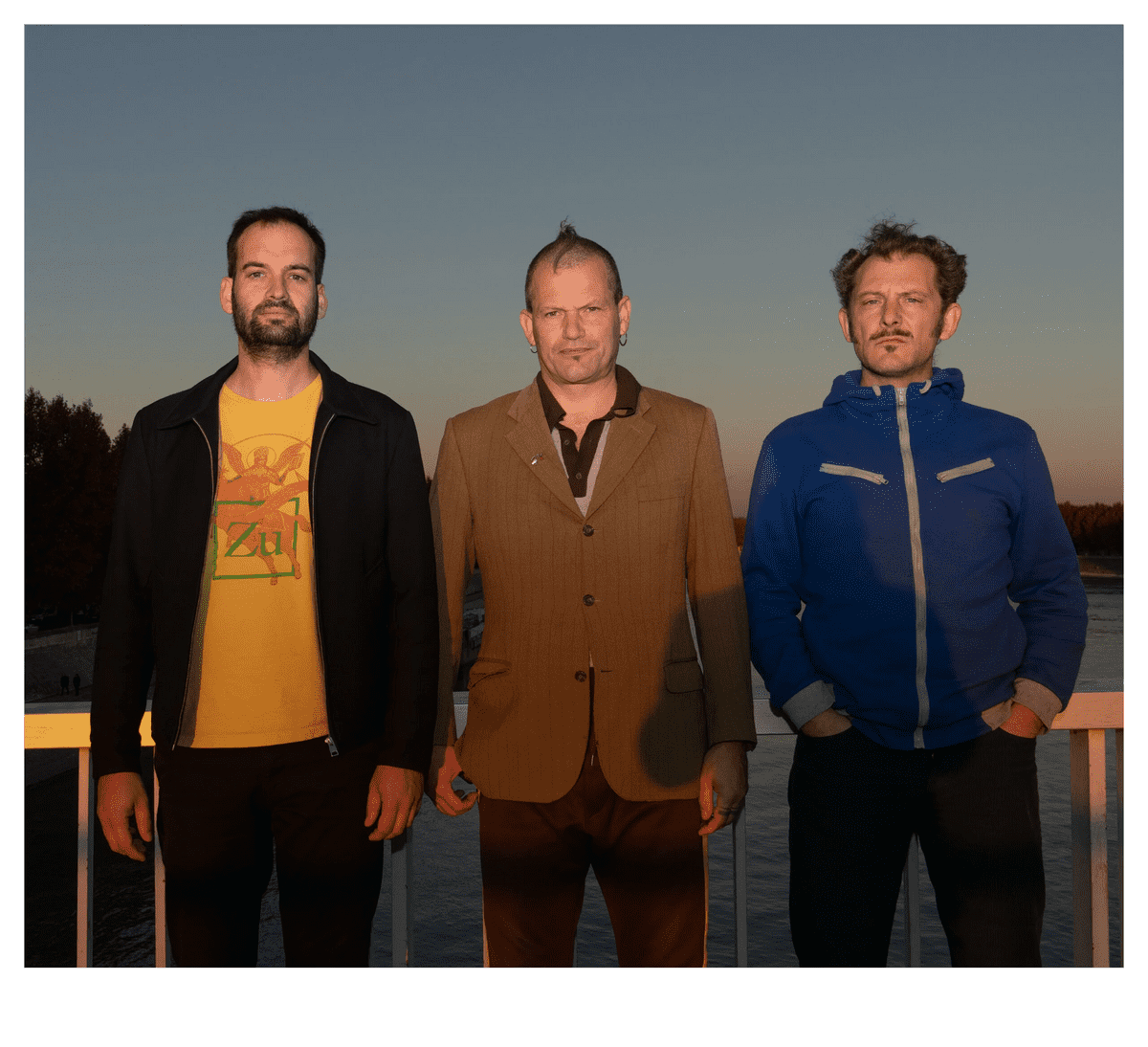
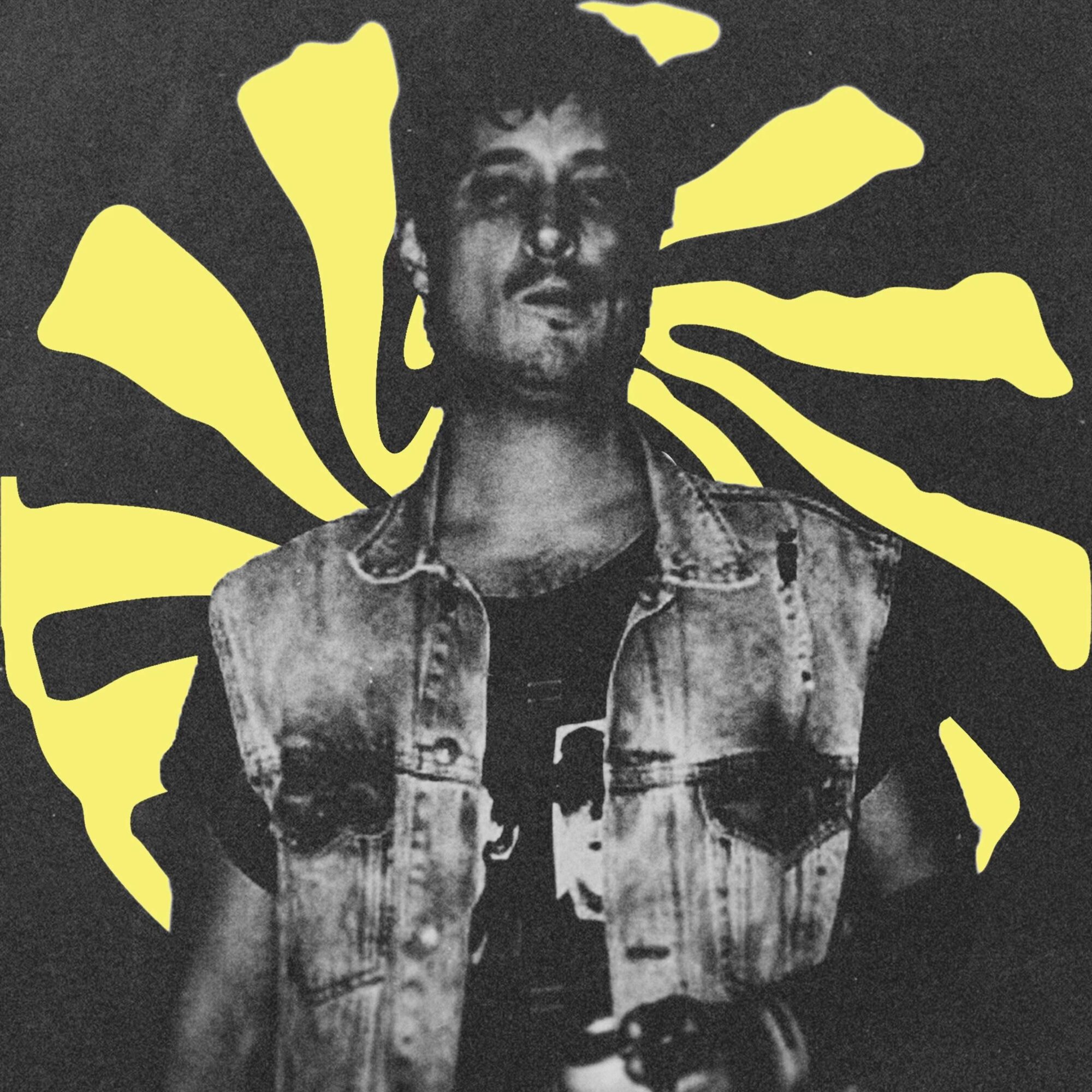
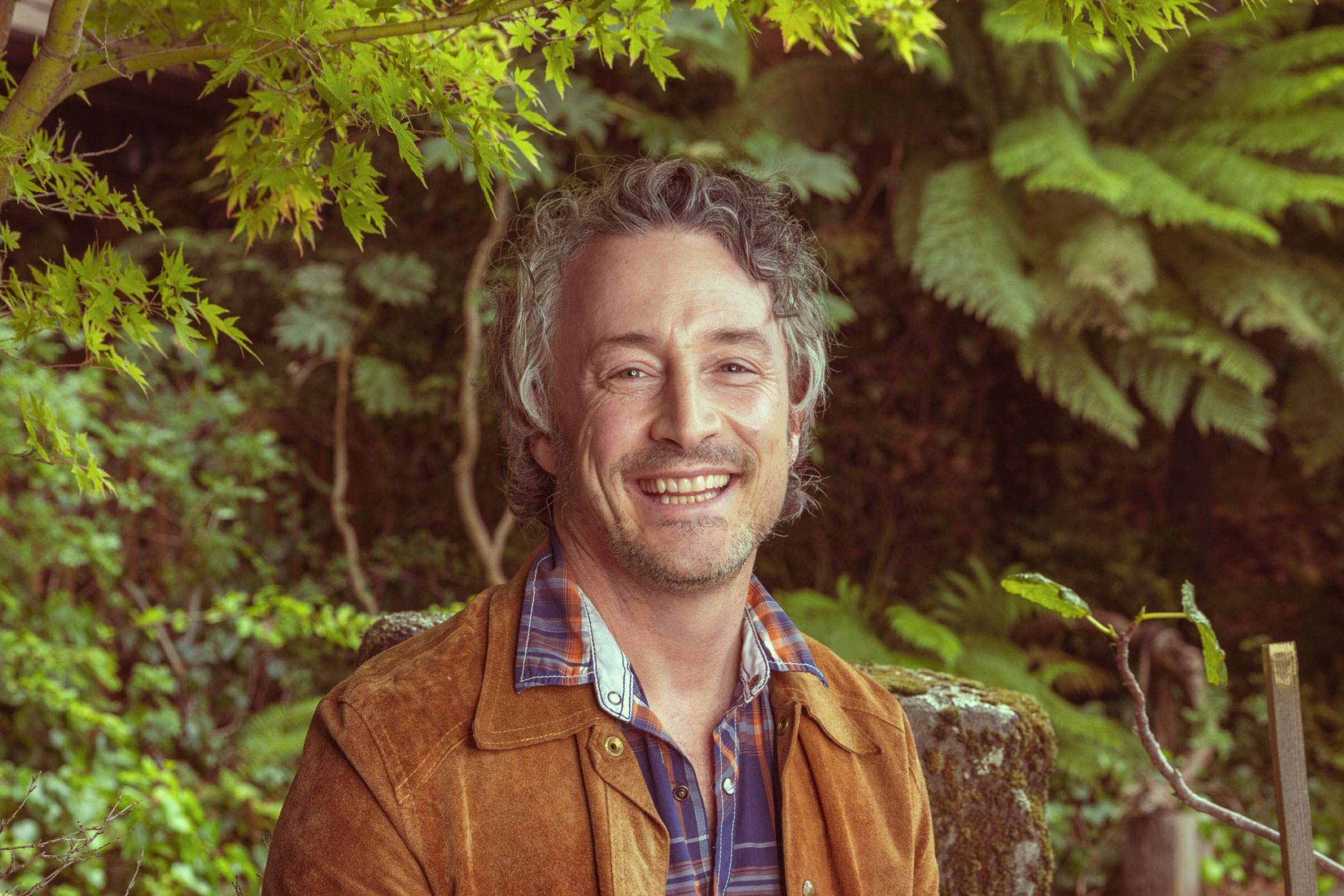
Nice to see an interview of the man here in the site.